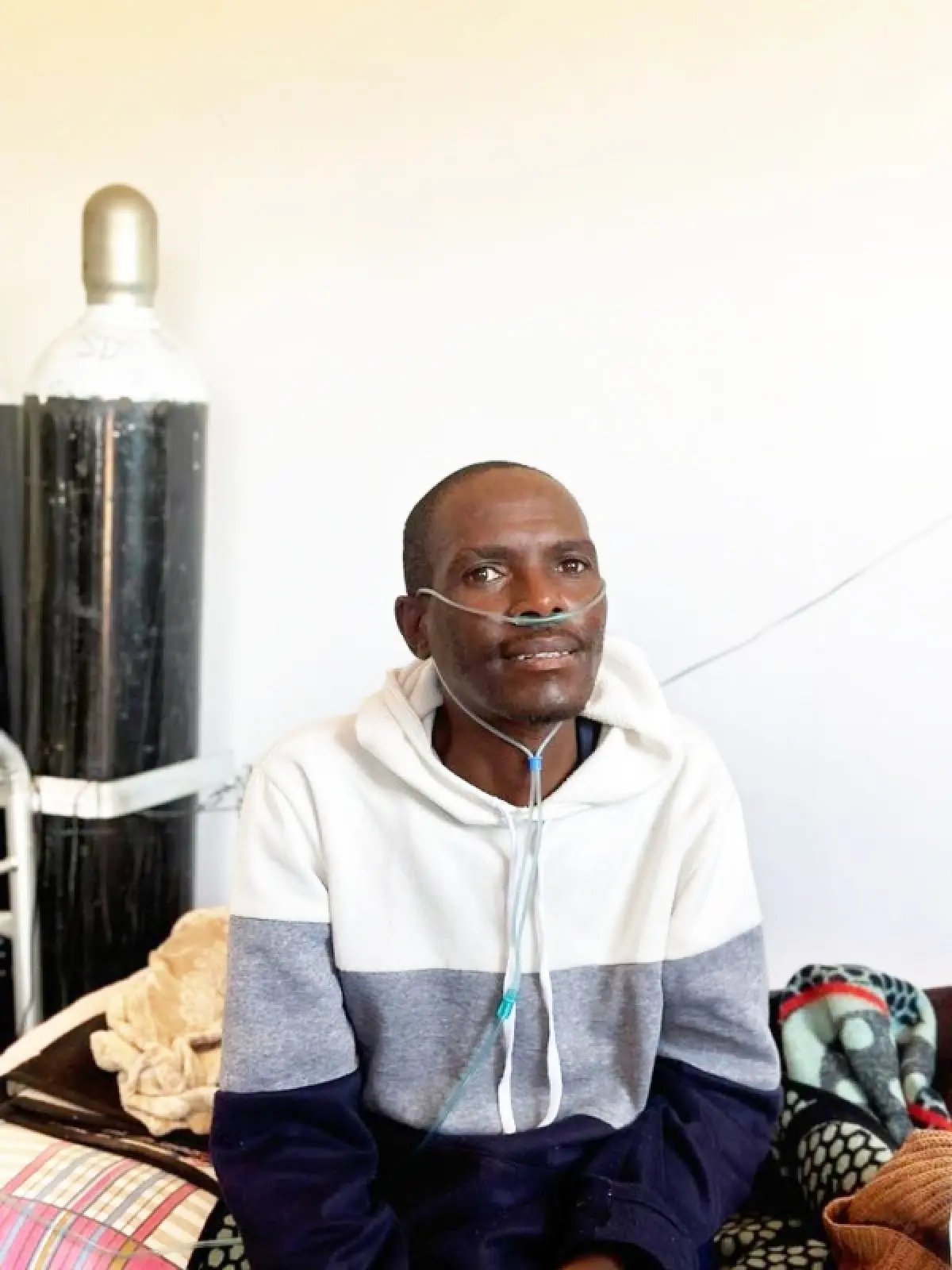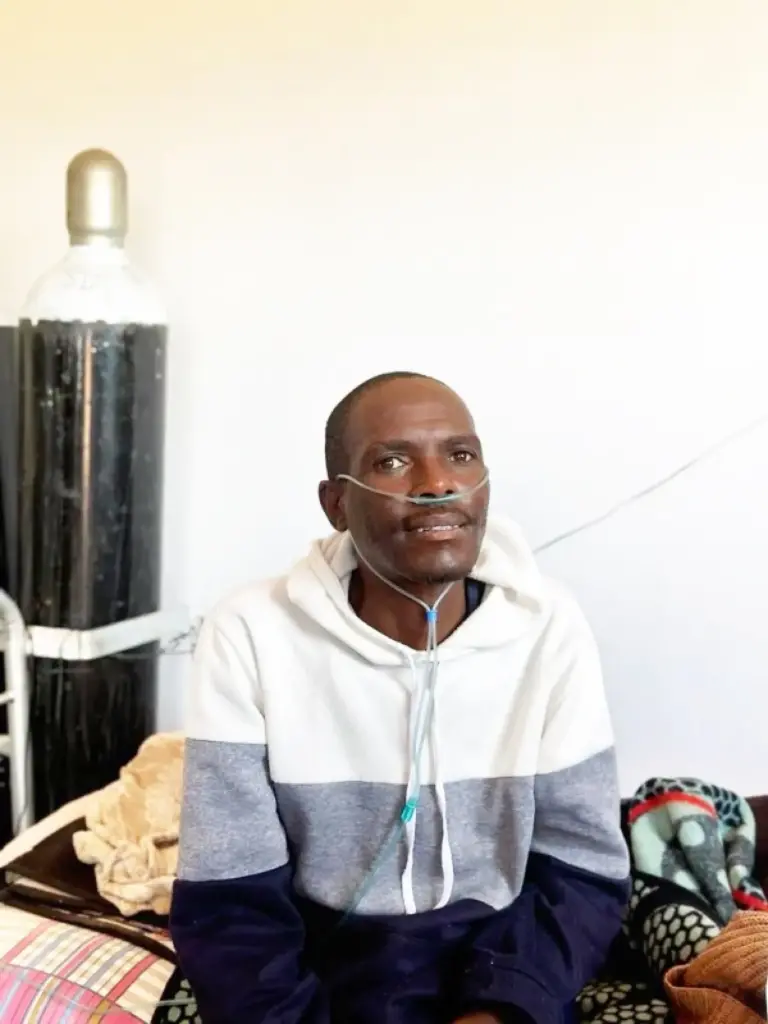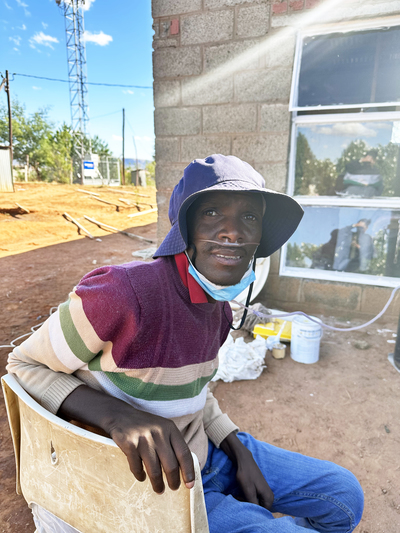PIH Gives Tuberculosis Patient Broad Support for Recovery

Treatment includes electricity, water supply, basics beyond hospitalization
Posted on Nov 15, 2023

Before becoming ill, Kaizer Mahapa, 44, worked as a street vendor in Maseru, Lesotho, selling jewelry, snacks, and fruits at two roadside stalls; one uptown in Maseru and another in his own yard.
Mahapa, who grew up in rural Lesotho, was diagnosed with HIV in 2019. Two years later, he contracted tuberculosis. He’d never attended school, instead cared for the family’s animals. Mahapa was living with his daughter when he fell ill.
Mahapa commenced antiretroviral therapy (ART) in 2019. But his battle with tuberculosis began after multiple hospital visits for symptoms that were initially misdiagnosed as a normal cold. He coughed up blood clots just before being admitted to the hospital again in 2021. The following year, he received a diagnosis of drug-resistant TB. Mahapa began treatment for his tuberculosis, but his health deteriorated further. Hospitalized yet again, he was treated for heart failure and anemia, in addition to the other conditions.
Despite his treatment, Mahapa developed severe, permanent lung damage and respiratory failure due to the TB, and he now requires supplemental oxygen to maintain normal blood circulation levels.
Mahapa was ultimately cured of TB, but it became clear he would need supplemental oxygen for the rest of his life. So, PIH staff rallied to help; they would do everything necessary to support their patient’s recovery.
In Lesotho, there typically is no treatment available for those with chronic lung disease requiring supplemental oxygen. These patients are usually sent home without oxygen, with the expectation that they will not survive for long. PIH had already planned to help Mahapa with supplemental oxygen by giving him an oxygen concentrator. However, this requires electricity, which Mahapa did not have at home. So, the PIH infrastructure team conducted a home assessment while Mahapa was still in the hospital, so they would be able to provide electricity when he returned to the house.
The home assessment found multiple problems. In addition to the lack of electricity, there was no water supply, no proper ceiling and several broken windows. “Mahapa’s home was not fit for someone in his condition,” said Kaoli Lerotholi, the operations and infrastructure manager at PIH. When it rained, the roof leaked, he said, and mold was developing. So, the PIH team got the house repainted and fitted with ceilings, and fixed the broken windows.
Mahapa’s illness took a significant toll on his business. He was forced to shut down both of his stalls, and his daughter had to discontinue her education during her final year of high school. He remains worried about his future, his daughter’s future, and their financial situation. “I used to be able to provide for my family, my daughter was almost done with high school. I have big dreams too, but now I feel like a burden to my family because everyone wants to take care of me instead of focusing on their lives,” Mahapa said.
He can no longer provide for his family, but he remains hopeful that he will eventually be able to breathe independently for extended periods. At present, he can go without oxygen for a maximum of one hour. His sister has taken on the role of the sole breadwinner, but her income is limited as she works in a factory.
“Government assistance to patients ought to mirror the way Mahapa was handled,” said Dr. Chase Yarbrough, one of Mahapa’s doctors. “He underwent and continues to endure a protracted struggle. His path is lengthy, even though he has been cured of tuberculosis.”
Mahapa agreed that every TB patient who needs oxygen and other assistance should receive it. “At least, with the help of oxygen,” he said. “I can experience improved breathing.”




